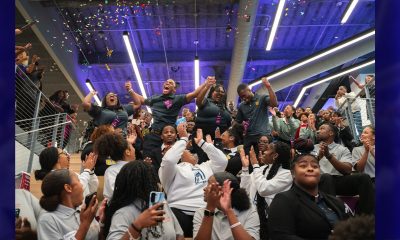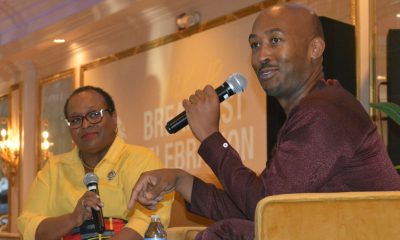HBCU
It Will Take Partnerships to Dismantle Criminal Injustices
HOUSTON FORWARD TIMES — The overrepresentation of Blacks in the criminal justice system is widely acknowledged. Unfortunately, there are few Historically Black Colleges and Universities (HBCUs) producing the necessary research to support the criminal justice reform movement. A quick Google search on the role of HBCUs in criminal justice reform produces few results. Limited resources and no directed marketing approach – issues not unique to HBCUs – make it difficult for HBCUs to be part of the reform.
By David Baker and Howard Henderson
The overrepresentation of Blacks in the criminal justice system is widely acknowledged. Unfortunately, there are few Historically Black Colleges and Universities (HBCUs) producing the necessary research to support the criminal justice reform movement. A quick Google search on the role of HBCUs in criminal justice reform produces few results. Limited resources and no directed marketing approach – issues not unique to HBCUs – make it difficult for HBCUs to be part of the reform. However, if we are going to ensure that we participate in the necessary changes to the criminal justice system, there must be more collaboration between HBCUs, the government and private organizations.
Partnerships between universities and foundations have existed for decades and is ever more necessary today (for recent examples see Center for Advancing Opportunity and the Charles Koch Foundation). The growing complexity of problems in our criminal justice system demands an interdisciplinary approach. HBCUs are positioned to solve the complex challenges in creating a more equitable justice system. These partnerships are especially helpful to institutions traditionally limited in research dollars and human capital. Research grants are becoming more difficult to acquire as a result of greater competition and fewer funding opportunities. Public universities used to thrive entirely on government funding. These days, higher education is receiving less and less of this funding, particularly in those areas researching social ills.
As government funding for social science research continues to decline, with the majority of available research dollars slanted toward STEM-based programs, criminal justice reform research has had to take an interdisciplinary approach. HBCUs are equipped to embrace both collaborative efforts and traditionally siloed disciplines, creating evidence-based solutions for the countless members of resilient communities. After all, research conducted at universities should be focused on improving everyday life for members of the community. Thus, amid the growing presence of research funded by foundations, every partnership provides its own nuanced distinction. If HBCUs are to remain relevant, we must take advantage of these necessary partnerships. In fact, the National Research Council notes that “Strengthening Partnerships with Business” is a top ten recommendation for competitive universities most likely to overcome the budget reductions of the state and federal government.
Contemporary Model
The Center for Justice Research (CJR) at Texas Southern University uses a multi-pronged funding approach to address social ills, motivate faculty research, and train the next generation of researchers respective of a culturally sensitive approach. There is a need to ensure criminal justice reform embraces the cultural and personal impact of those processed through the system. The value of this multi-pronged funding model lies in its ability to foster interdisciplinary reform-based research that has the potential to mature into a long-term university and community benefits.
CJR is a contemporary example of an HBCU – foundation partnership necessary to address a contemporary concern. This partnership model has the ability to change policy using locally accessed research, allowing agencies in need of research to maintain a link with the university as their programming matures. Providing a residence for start-up research in criminal justice reform within the HBCU academic space allows professionals to become embedded in the research setting with access to much needed information. At the same time, giving researchers and students direct access to professionals builds a network of knowledge and collaboration that is mutually beneficial.
However, long-term strategic alliances, focused around a specific area of study such as criminal justice reform efforts, has a great potential for immediate impact. Opportunities exists for HBCUs to partner with foundations at a variety of levels as they embrace a common set of objectives. This has indispensable efficiencies, such as breaking down barriers to intellectual data rights, creating transparency between entities, pooling resources, and streamlining the process of bringing research results from intellectual positions to stakeholders. Thus, the CJR model creates a framework for the rapid and open exchange of information between parties with shared vision and goals. Integrating an evidence-based, culturally responsive approach further expands the reach of the criminal justice reform movement.
This model can also inspire democratic innovation and discovery by linking together academia, government agencies, philanthropic organizations, non-governmental organizations, private investors and individuals who would otherwise remain disconnected.
Along these lines, any success of a partnership depends largely on several key factors, including:
- research and funding collaborations;
- mentoring the next generation of researchers;
- developing a shared vision that identifies the purpose, framework and goals of the partnership;
- identifying leaders who are capable of navigating that sensitive space between public and private entities;
- creating a shared platform for the exchange of ideas and information that contribute to the overall goals of the partnership;
- investing in long-term relationships.
By fostering more partnerships between HBCUs and foundations, we are better able to develop meaningful research and reforms intended to improve life chances for the countless members of resilient communities.
David Baker is a Research Fellow in the Center for Justice Research & Associate Professor and Howard Henderson, Director of the Center for Justice Research & Professor School of Public Affairs at Texas Southern University
This article originally appeared in the Houston Forward Times.
Community
Laphonza Butler Becomes California’s Newest U.S. Senator
Two days after California Gov. Gavin Newsom announced that Laphonza Butler would fill the U.S. Senate seat of the late Dianne Feinstein, the new senator was sworn in on Capitol Hill by U.S. Vice President Kamala Harris.
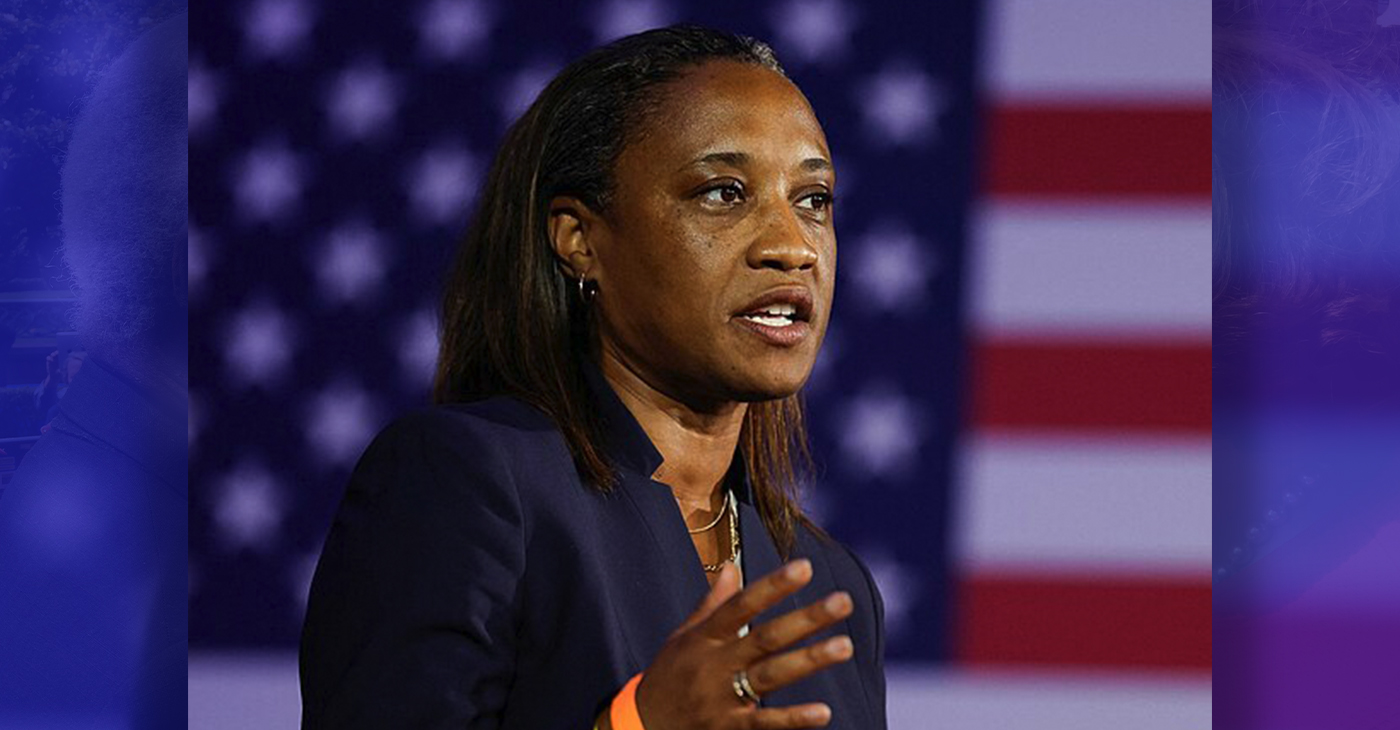
Replacing the Late Sen. Dianne Feinstein, Butler Becomes the 3rd Black Woman to Serve in Upper Chamber
By Lauren Victoria Burke,
NNPA Newswire contributor
Two days after California Gov. Gavin Newsom announced that Laphonza Butler would fill the U.S. Senate seat of the late Dianne Feinstein, the new senator was sworn in on Capitol Hill by U.S. Vice President Kamala Harris.
Flanked by Senate Majority Leader Chuck Schumer and California Sen. Alex Padilla as she took the oath, Butler than received a round of applause by senators of both parties.
After the swearing-in, President Joe Biden called Butler to congratulate her, the White House said.
“I am honored to accept Gov. Newsom’s nomination to be a U.S. Senator for a state I have long called home,” Butler said in a statement Monday. “I am humbled by the Governor’s trust. Sen. Dianne Feinstein’s leadership and legacy are immeasurable. I will do my best to honor her by devoting my time and energy to serving the people of California and the people of this great nation.”
She will be the third Black woman to serve in the U.S. Senate, preceded by Illinois’s Carol Mosely Braun, and current V.P. Kamala Harris. Butler is also the first openly lesbian Black U.S. senator: Her wife, Neneki Lee, held the Bible during Butler’s swearing-in.
Since 2021, Butler has been serving as the president of EMILY’s List. The fundraising platform supports and funds women candidates and amplifies issues that disproportionately impact women.
Before that she was involved in labor organizing, elected president of California’s largest union, Service Employees International Union (SEIU).
“As the president of SEIU 2015, Laphonza Butler led the fight for fair wages and respect for home care workers,” said Mary Kay Henry, current SEIU president, in a statement Monday. “As president of SEIU California, she was a driving force in winning the first statewide $15 an hour minimum wage in the nation. She has been a strong ally electing pro-women candidates as president of Emily’s List.”
Fellow California Sen. Alex Padilla also expressed strong support for Butler. “Throughout her career, Laphonza Butler has been a strong voice for working families, LGBTQ rights, and a champion for increasing women’s representation in politics. I’m honored to welcome her to the United States Senate,” Padilla wrote in a statement. “Governor Newsom’s swift action ensures that Californians maintain full representation in the Senate as we navigate a narrow Democratic majority. I look forward to working together to deliver for the people of California.”
Newsom’s decision was not on the political radar screen of most prognosticators.
With the selection of Butler, the decision by California’s Governor did not include any of the currently announced candidates for U.S. Senate in 2024 in California. Those current candidates include veteran members of Congress Barbara Lee and Adam Schiff and relative newcomer Katie Porter.
“As we mourn the enormous loss of Senator Feinstein, the very freedoms she fought for — reproductive freedom, equal protection, and safety from gun violence — have never been under greater assault. Laphonza will carry the baton left by Senator Feinstein, continue to break glass ceilings, and fight for all Californians in Washington, D.C.,” wrote Gov. Newsom in a statement released on the evening of October 1 announcing Butler’s appointment.
Butler will be the only Black woman in the Senate. But Delaware Congresswoman Lisa Blunt Rochester is expected to win the Senate seat vacated by Senator Tom Carper. Carper announced he would not run for re-election in 2024 and Rochester announced shortly afterwards that she would run for Carper’s seat.
Butler formally became another addition to the Congressional Black Caucus when she was welcomed with a swearing in by those members later on Tuesday.
Butler grew up in Magnolia, Miss., one of four siblings raised by a single mother. Her father, who suffered from heart disease, passed away when Butler was 16. She attended Jackson State University, an HBCU, graduating in 2001.
Community
Historic Black University: Multiple Suspects Sought After Shooting Incident at Morgan State University
Baltimore Police Commissioner Richard Worley and Morgan State University Police Chief Lance Hatcher told reporters that the incident happened around 9:25 p.m. when university police officers, on their regular patrol, detected gunfire from the campus. The victims, aged between 18 and 22, which include four men and a woman, sustained injuries that are reported to be non-life-threatening.
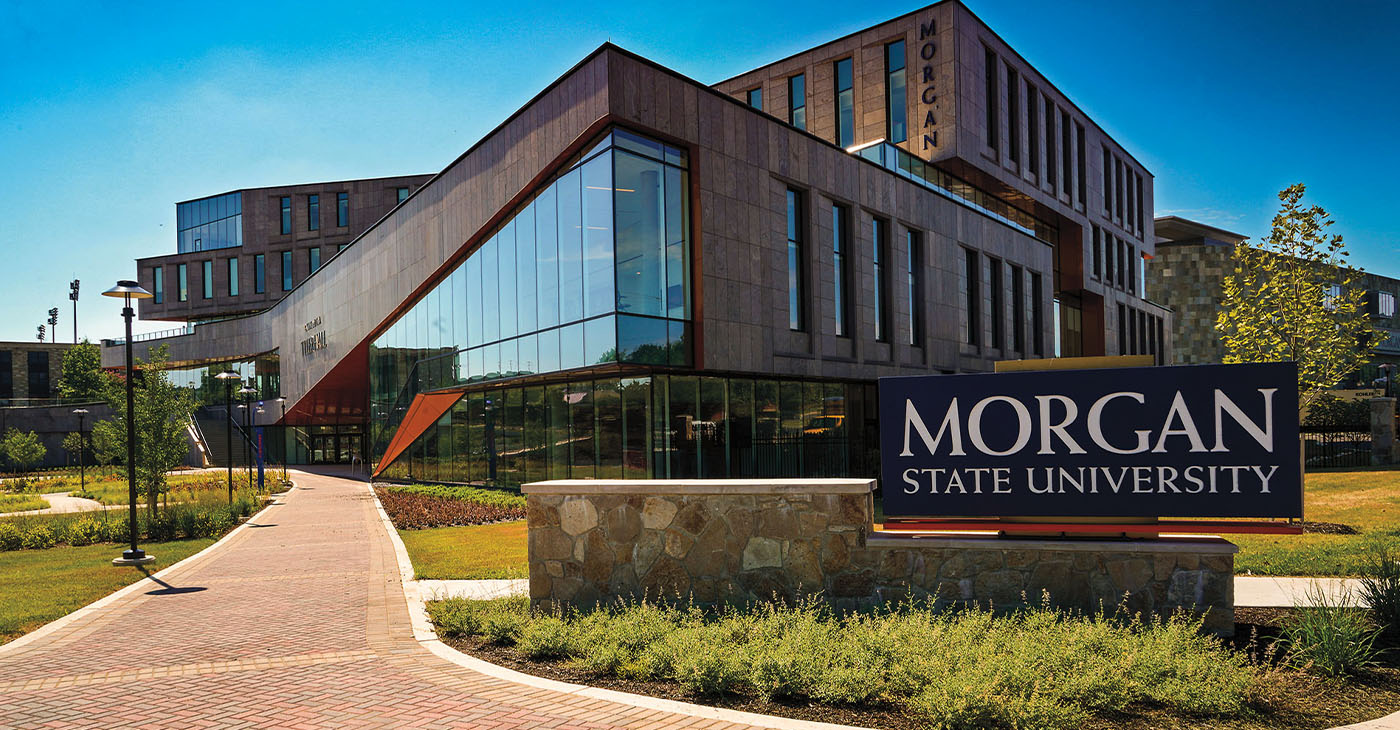
By Stacy M. Brown
NNPA Newswire
Baltimore police are intensifying their search for multiple suspects involved in a shooting incident that occurred on the campus of Morgan State University, leaving five individuals injured. Among the victims, four are students of the historically Black institution.
Baltimore Police Commissioner Richard Worley and Morgan State University Police Chief Lance Hatcher told reporters that the incident happened around 9:25 p.m. when university police officers, on their regular patrol, detected gunfire from the campus. The victims, aged between 18 and 22, which include four men and a woman, sustained injuries that are reported to be non-life-threatening.
“The entire city of Baltimore’s heart aches for the Morgan community, for the victims and their families, and for our city as a whole,” Baltimore Mayor Brandon Scott stated.
Multiple windows were shattered during the incident, and school officials said they immediately began active shooter response protocols. Worley said police systematically cleared buildings in pursuit of those responsible. While there are indications that it could have been more than one shooter, authorities could not confirm whether multiple assailants were involved.
Hatcher said university police received notification of the shooting at approximately 9:27 p.m. and sent the first public safety alert to the community at 9:30 p.m., followed by four other notifications.
At approximately 11:45 p.m., city police announced via Twitter that the incident was no longer an “active shooter situation.” University officials announced via social media that the shelter-in-place order had been lifted, and shuttle services resumed at around 12:30 a.m.
Worley emphasized that SWAT officers meticulously combed through every floor of the buildings they searched, conducting two sweeps, before lifting the shelter-in-place order.
Authorities are urging anyone with information to come forward and assist in their efforts to bring those responsible to justice.
Black History
Acting President of Temple University Dies Suddenly After Memorial Service
“President Epps was a devoted servant and friend who represented the best parts of Temple,” the university said in a statement. “She spent nearly 40 years of her life serving this university, and it goes without saying her loss will reverberate through the community for years to come.”
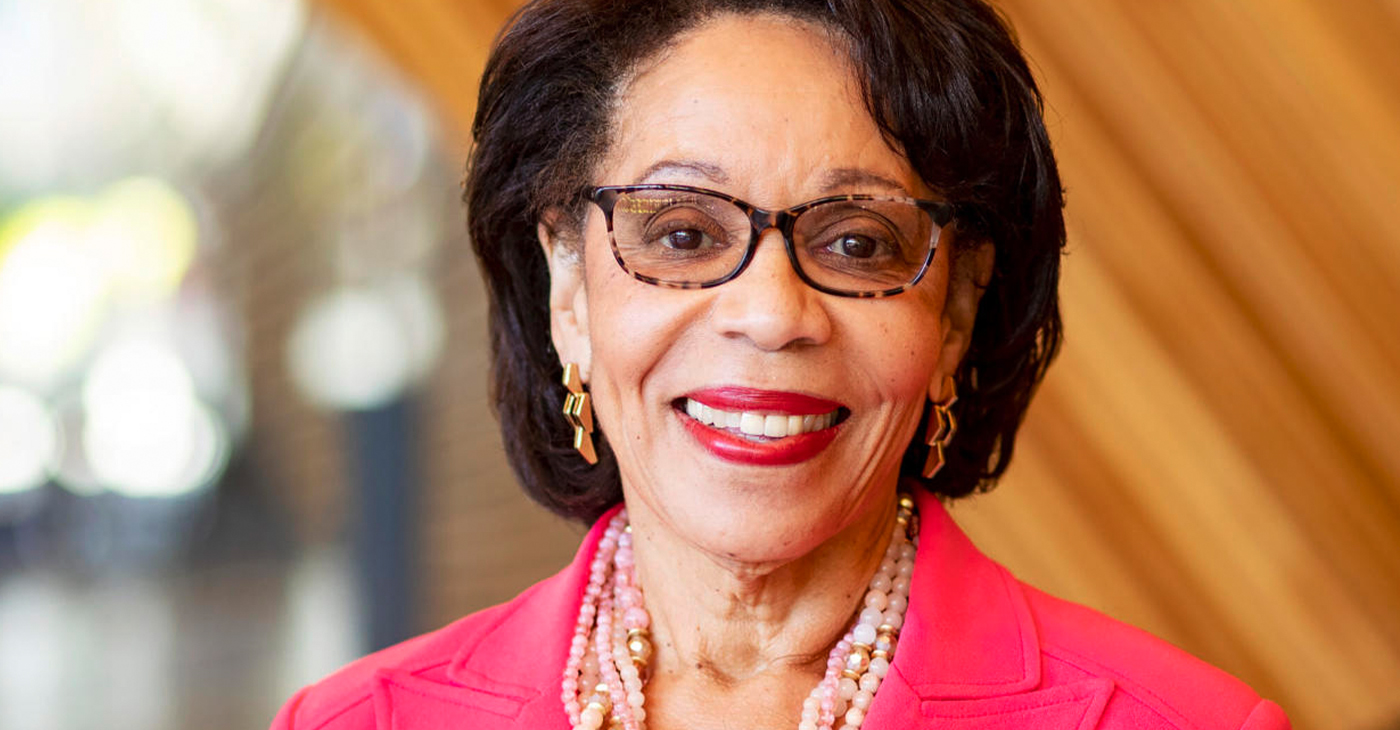
NBC News
Referred to by a colleague as a ‘calm force in troubled waters,’ Temple University Acting President suddenly died Tuesday after falling ill at a memorial service, officials at the Philadelphia school said.
While attending a memorial for Charles L. Blockson, JoAnne A. Epps, 72, slumped in her chair onstage while someone else was speaking and was taken to the hospital where she was pronounced dead.
“President Epps was a devoted servant and friend who represented the best parts of Temple,” the university said in a statement. “She spent nearly 40 years of her life serving this university, and it goes without saying her loss will reverberate through the community for years to come.”
-

 Activism3 weeks ago
Activism3 weeks agoOakland Post: Week of March 27 – April 2, 2024
-

 #NNPA BlackPress4 weeks ago
#NNPA BlackPress4 weeks agoCOMMENTARY: D.C. Crime Bill Fails to Address Root Causes of Violence and Incarceration
-

 #NNPA BlackPress4 weeks ago
#NNPA BlackPress4 weeks agoFrom Raids to Revelations: The Dark Turn in Sean ‘Diddy’ Combs’ Saga
-

 #NNPA BlackPress4 weeks ago
#NNPA BlackPress4 weeks agoCOMMENTARY: Lady Day and The Lights!
-

 #NNPA BlackPress4 weeks ago
#NNPA BlackPress4 weeks agoMayor, City Council President React to May 31 Closing of Birmingham-Southern College
-

 #NNPA BlackPress4 weeks ago
#NNPA BlackPress4 weeks agoBaltimore Key Bridge Catastrophe: A City’s Heartbreak and a Nation’s Alarm
-

 #NNPA BlackPress4 weeks ago
#NNPA BlackPress4 weeks agoBaltimore’s Key Bridge Struck by Ship, Collapses into Water
-

 #NNPA BlackPress4 weeks ago
#NNPA BlackPress4 weeks agoBeloved Actor and Activist Louis Cameron Gossett Jr. Dies at 87







